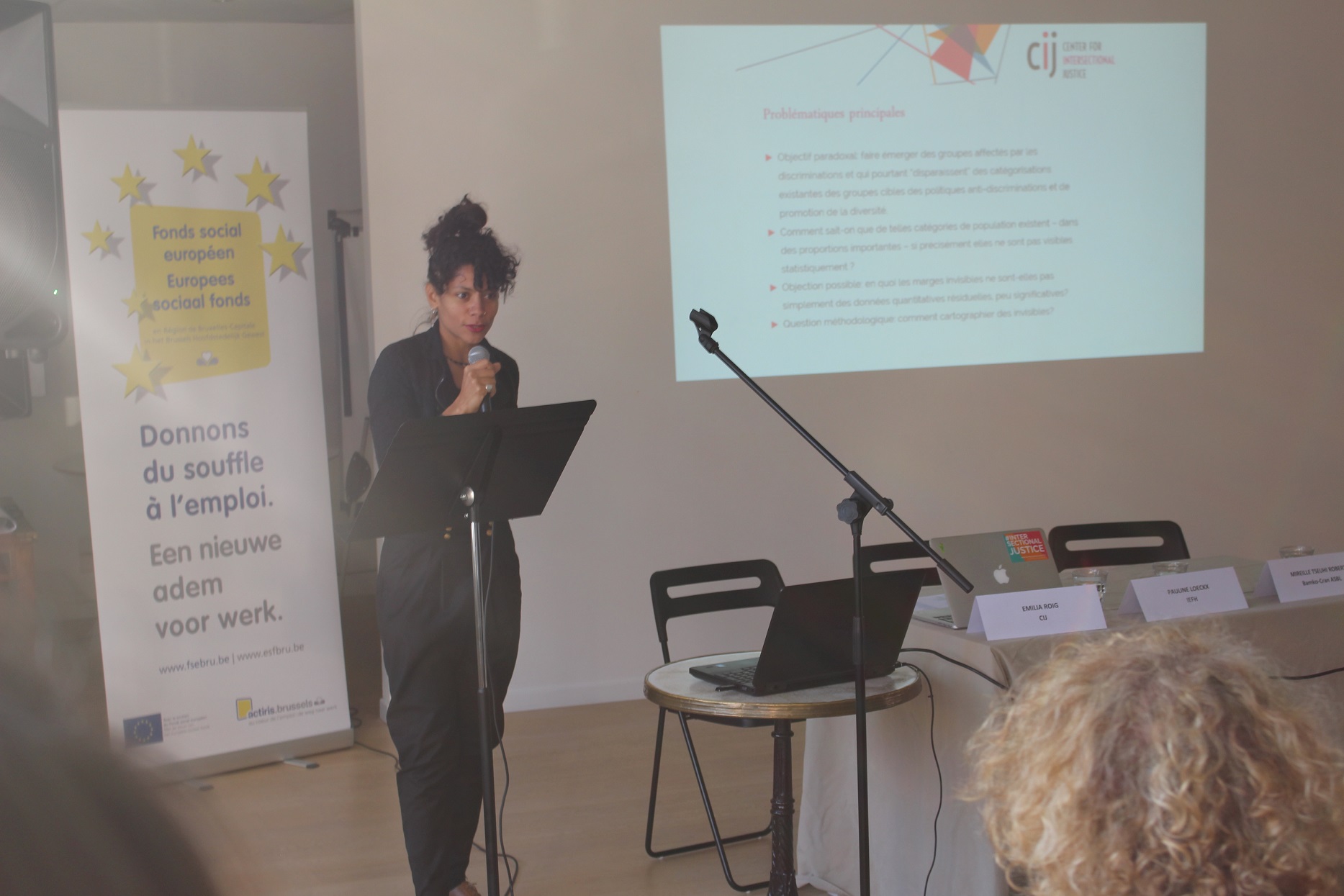Intersectionality, a different view on discrimination

date: 09/04/2019
One of the most important conclusions of the report is that we still look too much the labour market on a one-dimensional way, which means from one category, for instance age or gender. Reality shows that persons can be determined from a combination of ‘identity markers’: a person is not only a man or a woman, but this person belongs at the same time to an ethnic group, a social class or an age group. These ‘markers’ have an important impact on our position on the labour market. The report ‘intersectionality’ highlights the necessity to cross gender, origin and other identity markers. It helps to expose processes leading to prejudices and inequalities on the labour market. From the report we learn that origin (non-European) and gender (women, with our without children) are the main markers influencing employment opportunities, and that the level of education and having a (recognized) diploma as well influences the position on the labour market of persons with a migration background.
As a sequal to this report ‘intersectionality’, it is decided to develop specific measures to tackle more successfully the current discrimination and inequality on the labour market. In order to do so, the remarks of the social partners, the employers and other actors on the labour market are taken into account. It starts with an analysis of the current policy on the target groups in the Brussels Capital Region, followed by a proposal to adjust the policy on intersectionality already existing in other regions, to the Brussels social, economic and political reality.
